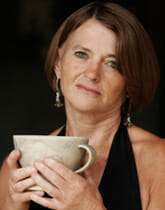Welcome to ACT taking hurt to hope. Today Iwould like to take up the concept of prosocial behavior. What it is, how is can be trained and what kind of effects it has for us as individuals and as a group, as a nation and on our earth. Prosocial behavior is defined as voluntary behavior intended to benefit another. A social behavior that benefits other people or as a society as a whole. such as helping, sharing donating co-operating and volunteering.These efforts may be motivated by empathy and by concern about the welfare and rights of others or by more selfish desires for example to develop oneself. A recent article in Health Psychology called Motives for Volunteering are associate with Mortality Risk in Older Adults suggest that it is the motive for volunteers that has health promoting effects not simply the behavior of volunteering. Those who volunteered for more self centered reasons for example to benefits themselves had no significant effects on stress and early mortality figures whereas those who volunteered with the motive of simply wanting to help gained greater protective for the harmful effects of stress.
Our guest today is a pioneer researcher Profess or David Sloan Wilson within evolutionary biology who has in recent years worked together with Steve Hayes in training Prosocial behavior.
David Sloan Wilson is SUNY Distinguished Professor of Biology and Anthropology at Binghamton University. He uses evolution to understand and improve the human condition in addition to his fundamental contributions to evolutionary theory. He directs several programs that expand evolution beyond the biological sciences in higher education (EvoS), public policy (The Evolution Institute), and community-based research (The Binghamton Neighborhood Project). His books include Darwin’s Cathedral: Evolution, Religion, and the Nature of Society (2002), Evolution for Everyone: How Darwin’s Theory Can Change the Way We Think About Our Lives (2007), and The Neighborhood Project: Using Evolution to Improve My City, One Block at a Time (2011), which won the Books for a Better Life Award in the “green” category in 2012.

